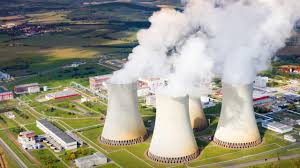Generation

South Africa revives nuclear reactor project in new energy plan

South Africa plans to revive its long-stalled modular nuclear reactor project and expand gas-fired power generation under a new national energy blueprint, signalling a major shift in its electricity strategy.
According to the updated Integrated Resource Plan (IRP) unveiled by Electricity and Energy Minister Kgosientsho Ramokgopa, the country expects to invest 2.23 trillion rand ($128 billion) in energy infrastructure by 2042. The revised plan envisions nuclear and gas contributing 16% of total generation capacity within 14 years, up from the current 3%, while reliance on coal is projected to fall from 58% to 27%.
Ramokgopa described the IRP as “the single biggest investment program of the post-apartheid era,” stating it will ensure that “we’re able to achieve energy security.”
South Africa, Africa’s most industrialised economy, has long depended on coal for electricity, enduring years of rolling blackouts that only began to ease last year. The IRP outlines how the country plans to meet rising power demand while pursuing net-zero electricity generation by 2050.
The move revives Eskom Holdings SOC Ltd.’s abandoned pebble-bed modular reactor program, first proposed in 1999, which was expected to generate billions in licensing revenue. The project was shelved in 2010 after the state utility spent $980 million developing the technology. However, environmental groups are already signalling resistance to the revival effort.
South Africa is home to the continent’s only commercial nuclear power plant, Koeberg. The Koeberg Nuclear Power Station, located near Cape Town, currently provides 4.2% of the nation’s electricity, with a combined output of 1,940 MW from its two reactors.
Across Africa, international investors and development partners are showing renewed interest in financing nuclear infrastructure, viewing it as a critical pathway to energy security, industrial growth, and climate resilience. Fourteen of the world’s top financing institutions have committed to funding nuclear projects going forward.












